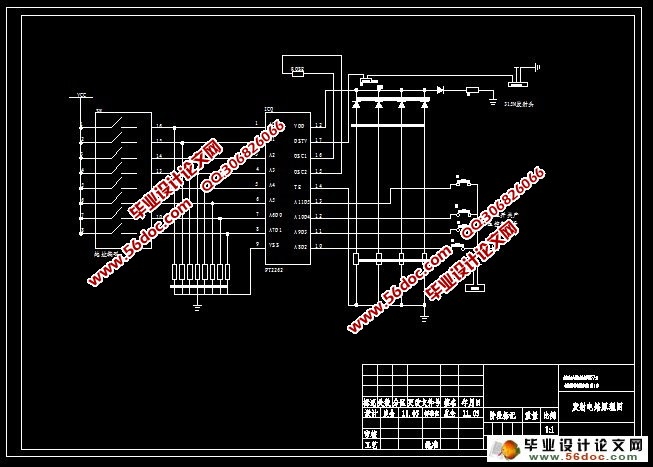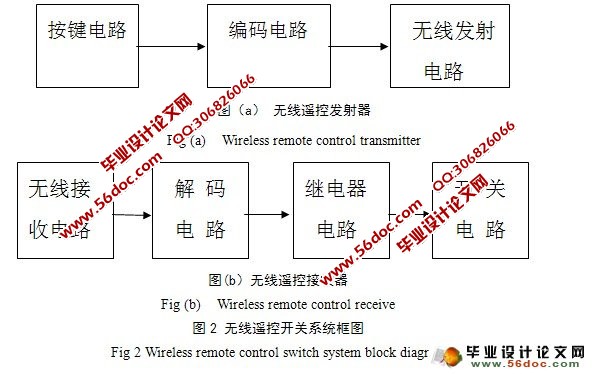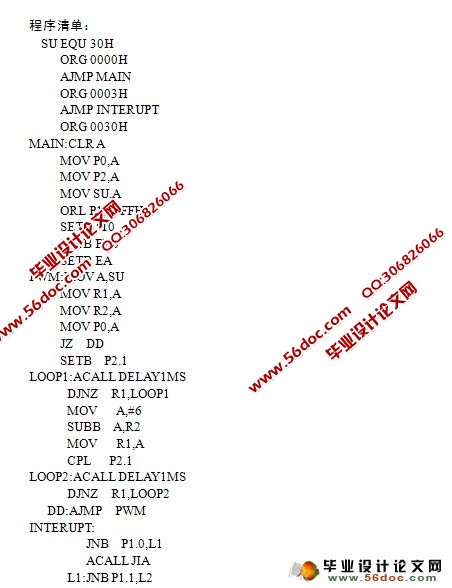无线遥控方式集中控制电源开关系统设计(附原理图,流程图,程序)
无需注册登录,支付后按照提示操作即可获取该资料.
无线遥控方式集中控制电源开关系统设计(附原理图,流程图,程序)(附原理图,流程图,程序)(论文说明书14000字,CAD图纸1张)
摘 要:本设计是基于单片机实现的无线遥控系统。分为无线发射模块、无线接收模块、电源开关及单片机控制部分。本系统通过无线电实现控制信号的传递,单片机作为控制部件协调处理整个系统的工作。本系统具有很强的通用性和实用性,可以将其用于各种电子电器设备中实现无线控制,也可以广泛应用于各种电器、机器人和各种自动化控制领域中的遥控装置。本系统易控制,成本低,能提供较大的功率,适应各种自动化控制设备的大功率应用。
关键词:单片机;无线收发系统;电源开关;PT2262/PT2272
Centralized Control of Wirerless Power Switch Management System
Abstract: The design is based on the single-chip wireless remote control system . It makes up of the wireless transmitter module, wireless receiver modul, power switch and monolithic integrated circuit control. The system controls the delivery of signal by radio transmission and single-chip microcomputer as the control unit to deal with the work of the entire system..The system has a strong versatility and practicality, can be used for a variety of electrical and electronic equipment in the wireless control and also be widely used in various electrical appliances, robots and various automatic control in the field of remote control devices. The system is easy to control, low cost, can provide more power, adapt to high-power applications of automation control equipment.
Key words: Monolithic integrated circuit; Wireless transceiver system; Power switch ; PT2262/PT2272
总体设计思路
为了实现遥控电路能够对控制信号进行较远距离的有效传送,接收到的控制信号能够被主控制系统识别并产生控制信号。本系统将采用PT2262/PT2272编码解码芯片进行编解码;使用315MHz的发射、接收头实现无线传输信号;采用Atmel公司的AT89C51作为MCU控制处理整个系统;发射接收部分的关键问题是:如何有效的实现控制信号的无线传输。
控制部分的关键问题是:如何根据接收到的控制信号产生对应的输出信号。



目 录
摘 要 1
关键词 1
1 前言 2
1.1 引言 2
1.1.1 无线电源的发展现状 3
1.2 方案论证 3
1.2.1 总体设计思路 5
1.2.2 设计方案 5
2 系统硬件设计 5
2.1 无线发射和无线接收模块 6
2.1.1 编码和解码原理 6
2.1.2 315MHz无线发射、接收原理 9
2.1.3 电路设计 10
2.2 控制及显示部分 12
2.3 电源控制部分 15
3 软件设计 18
3.1 开发软件介绍 18
3.2 软件实现方法 18
3.2.1 软件流程 19
3.2.2 软件清单及仿真 19
4 结论 20
参考文献 21
致谢 21
附录 21
